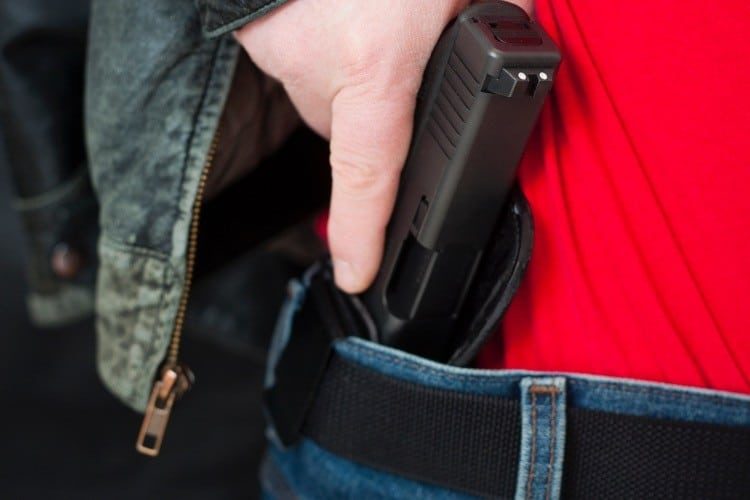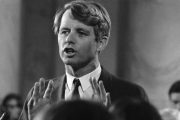
U.S. District Judge Iain Johnston, nominated to his position by then-President Donald Trump in 2020, ruled on Friday that Illinois’ ban on citizens carrying a concealed firearm for personal protection on either of Chicago’s two mass transit systems violated the Second Amendment. The bad news is that his ruling only applies to the four individual plaintiffs who brought the suit two years ago.
The ban, passed in 2014, became vulnerable to challenge under the Supreme Court’s ruling in Bruen in June 2022, and the four filed their complaint 90 days later. They referred specifically to the Supreme Court’s rulings in Heller (the right to carry is an individual right), McDonald (the Second Amendment applies to the states under the 14th Amendment), and Bruen (“the government must affirmatively prove that its firearms regulation is part of the historical tradition that delimits the outer bounds of the right to keep and bear arms”).
No “Tradition”
The complaint stated that “At the time of the Founding, there was no tradition of restricting firearm possession while in transit,” and, by contrast, there were state statutes that required the carrying of firearms “while away from home.”
It stated simply:
Because the Public Transportation Carry Ban prohibits persons from carrying a firearm while accessing public transportation, the Ban severely restricts Plaintiffs from exercising their right to self-defense outside of the home.
This directly violates the Second and Fourteenth Amendments to the United States Constitution as held by the U.S. Supreme Court in Heller, McDonald, and Bruen.
Foxx’s Argument
Left without any legitimate way to defend the ban, Soros-backed State’s Attorney of Cook County, Illinois Kim Foxx, one of the four defendants named in the lawsuit, had to get creative.
She tried to persuade the judge that a law from the year 1328 — the Statute of Northampton, Great Britain — formed the basis for laws passed centuries later that somehow provided that “historical tradition” now required under Bruen. The judge didn’t buy it.
Foxx then tried the Black Act of 1723, which prohibited the carrying of weapons in forests and on roads if the bearer’s face was disguised. (We’re not making this up. See page 32 of the ruling.) Again, Johnston didn’t consider her argument persuasive.
But the one effort by Foxx that drew contemptuous laughter (in writing) from the judge was Foxx’s attempt to claim that since the state government was a “proprietor” over the transit systems, it was somehow exempt from the Second Amendment:
Her argument — which is breathtaking, jawdropping, and eyepopping — is this: the ban applies only to property “funded in whole or in part” by Illinois, so Illinois has a proprietary interest in what it regulates.
Because governments [she said], like private property owners, enjoy “an absolute right to exclude others” from their property, Illinois may exclude whomever it wishes.
In her view, when the government regulates its own property, that regulation is exempt from the coverage of the Second Amendment, or any other constitutional guarantee of individual rights.
[U]nder Ms. Foxx’s argument, demonstrators could be barred from the Daley Center Plaza, despite it being a quintessential public forum.
Judge Johnston wasn’t done:
Although the right to exclude — including the right to exclude those bearing arms — may be a fundamental aspect of private property ownership, likely undiminished by the Second Amendment … it doesn’t necessarily follow that when a government like Illinois (through its transit agencies) act as a proprietor, the ban on arms bearing doesn’t implicate Plaintiffs’ rights under the Second Amendment.
The constitutional protection afforded to other individual rights isn’t nullified on public property.
The Second Protects the First
Judge Johnston provided an apt analogy to the First Amendment:
Although the government sometimes has greater power to regulate public property compared to elsewhere, otherwise protected conduct doesn’t become categorically unprotected.
If, as Ms. Foxx suggests, all speech on government property were exempt from First Amendment protection, the elaborate First Amendment doctrines of public forums and governmental motivations … would be utterly superfluous.
He ruled that all of “Ms. Foxx’s other citations are equally unavailing,” concluding that “defendants have failed to meet their burden” in providing the court with relevant examples of “historical tradition” to uphold the ban.
Those four citizens, under his ruling, are now free (subject to other gun regulations in place by the transit authorities themselves) to carry concealed while traveling on the CTA and Metra.
Defendants are now reviewing their options, including appealing his ruling to the state’s Supreme Court.




